Diving – Dive Groups
There are basically six types of diving groups related to springboard and platform diving. Among the six basic approaches, four are somersaulting towards or away from the springboard or platform. A forward approach and a backward press are also included in this. In the fifth approach, you can perform any of the above four approaches with twisting action and then finally with some more somersaults and twists, armstand is performed.
Forward Dives
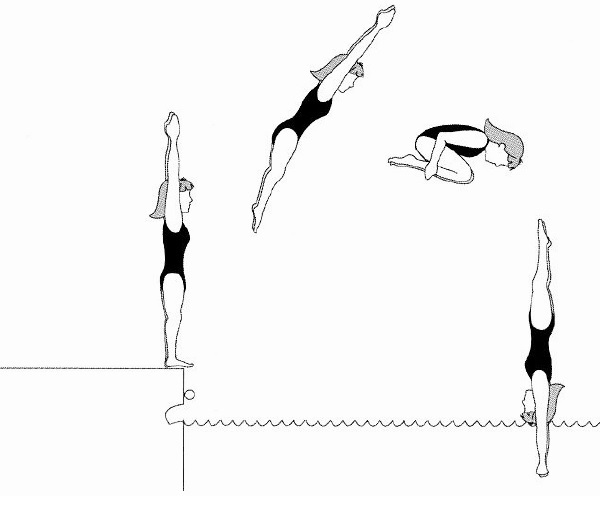
In this type of dive, face of the diver will be towards the end of the board and water. As soon as the diver reaches the end of the springboard, he/she has to rotate in the forward direction. Some of the dives present in the forward group are −
-
Performing two and half somersaults in pike position.
-
In tuck position, performing 1 and half somersaults.
-
Performing forward dive in pike position
-
In tuck position, performing four and half somersaults.
Back Dives
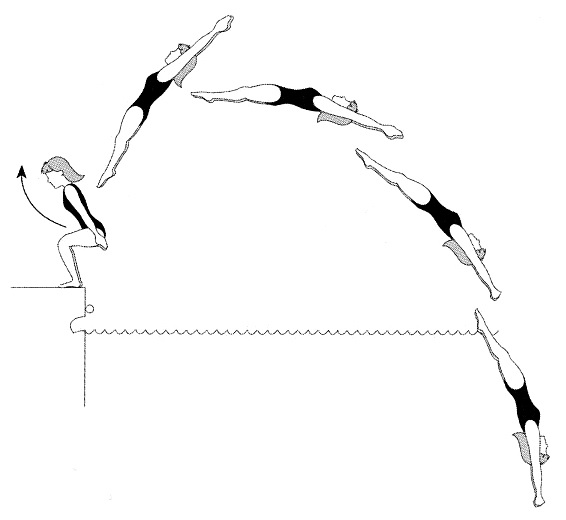
In this type of dive, a diver has to stand on the springboard with his back towards the water. After doing a backward press, the diver needs to take off. He has to perform half or three and a half somersaults after take-off. Some examples of the dives in backward group are −
-
Performing a back dive in straight position.
-
While being in straight position, performing back one and half somersault.
-
Performing two and half somersaults in pike position.
-
Performing three and half somersaults in tuck position.
Reverse Dives
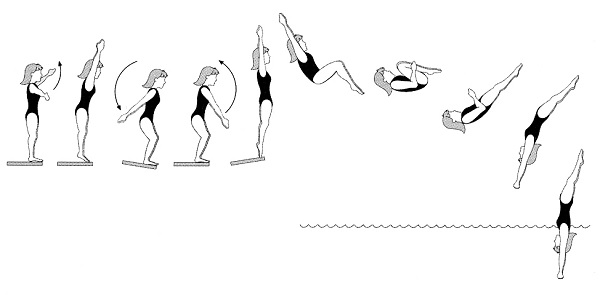
In this type of dive, the diver faces the end of the board and water after doing a forward approach. He has to rotate back towards the board while moving forward. Some of the dives in this group are −
-
In tuck position, performing reverse dive.
-
In pike position, performing one and half somersaults.
-
In pike position, performing two and half somersaults.
-
In tuck position, performing three and half reverse somersaults.
Inward Dives
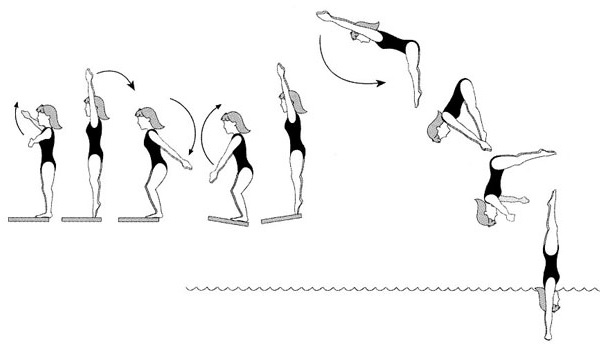
In this type of dive, the diver should face the water backwards but should rotate in forward direction. While moving away from the board, he has to perform three and a half somersaults. Some of the dives in this group are −
-
In pike position, performing inward dive in Open.
-
In tuck position, performing one and half somersault inward.
-
In pike position, performing two and half somersault inward.
-
In tuck position, performing 3 and half somersault.
Twisting Dives
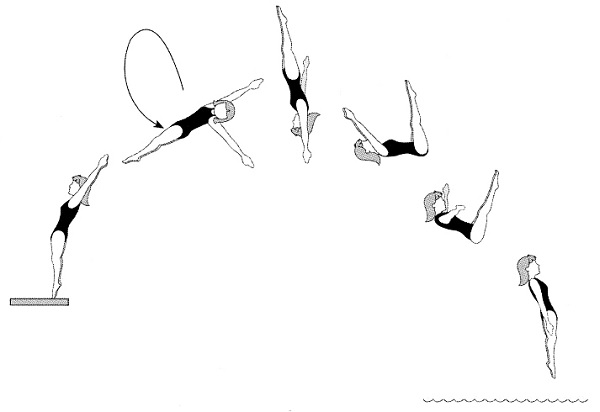
If a dive introduces twists in it then it is called as twist dive. This type of dive can be performed in forward, back, inward and in reverse direction. Twisting dives are also performed from an armstand. Example of dives in twisting category are −
-
In free position, performing one somersault with one twist.
-
In free position, performing one and half back position with one and half twists.
-
In the free position, performing one and half reverse somersaults with two and half twists.
-
In pike position, performing two and half forward somersaults with a single twist.
Armstand Dives
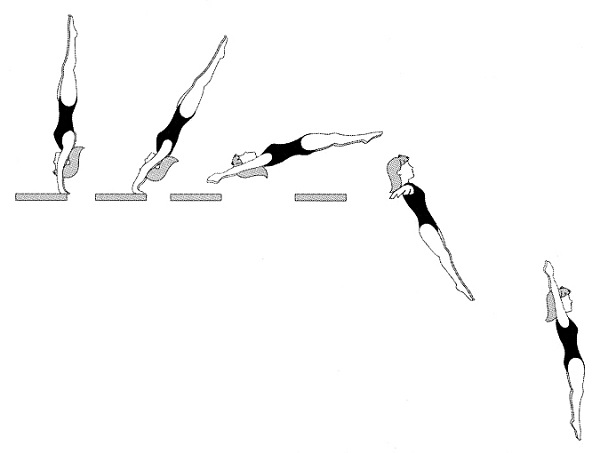
The level for performing armstand at platform is either 7.5 meters or 5 meters or 10 meters. In this type of dive, handstand can be performed at the edge of the platform in two ways
-
By facing forward such that their back faces the water
-
By facing backward so that their front faces the water
When both the feet of the diver leaves the ground, the dive is said to begin. Some of the examples of dives from this group are −
-
In the pike position, performing two forward armstand somersaults.
-
In the tuck position, performing two backward armstand somersaults.
-
In the pike position, performing armstand back with two somersaults and half twist.
-
In the free position, performing armstand back with two somersaults along with one and half twists.
